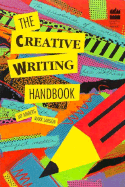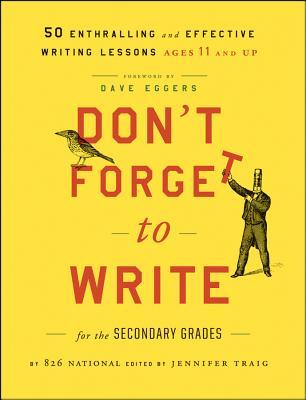 High
School students need teachers who encourage self-confidence and who
help them develop an honest writing voice. They also need to hone their
skills in proofreading, revision, and correct word and style usage,
according to Creative Writing Handbook by Jay Amberg and Mark Larson.
High
School students need teachers who encourage self-confidence and who
help them develop an honest writing voice. They also need to hone their
skills in proofreading, revision, and correct word and style usage,
according to Creative Writing Handbook by Jay Amberg and Mark Larson. Here is a syllabus that I will use this summer:
Course Description: This course focuses on writing for publication in two genres: poetry and fiction. The purpose of this class is to encourage students to cultivate the habits, attitudes and flexibility of a professional writer in a professional writing community. Students will practice writing like a reader and reading like a writer. Students will be expected to enter final products into professional and/or student contests, confer with the instructor, participate in writer response groups, read contemporary published authors, keep and regularly write in a writer’s notebook, and experiment with and revise writing routinely.
What is creative writing? Creative writing is the art of crafting a piece for publication. Notebook generating is just one of the steps in the creative process. The true art of writing includes not only the process of journaling or generating, but also phases of reading, mentoring, experimenting/revising, and editing. All final pieces you will create for this class will reflect the process of writing. Our goal is to become a community of writers who experiment, craft, revise and tinker with our work. Writers see the world as text.
Remember: Write with passion and honesty. All we can ask for is honest effort and diligence in your work as a writer in this community. Make a commitment to your work and take pride in what you write. Do not worry about your creative skills at the beginning of the course; our classroom experiences will be dedicated to improvement no matter what your level today.
Supplies:
Writer’s notebook, writing utensil, flash drive, planner
Grading:
10 % Workplace Skills and Attitudes
30% Writers’ Notebook (In-Class, Assigned & Independent Generating Writes)
30% Process Writing
30% Final Drafts
Units of Study
Contemporary Poetry
Slam Poetry
Fiction
Micro-Fiction
The Curriculum
In Creative Writing we will be using various contemporary poems and short stories. The students are responsible for learning and using certain writer’s craft in the curriculum. We have chosen certain texts that exemplify these crafts. If at any time a student/parent objects to any material used, I would be more than happy to accommodate by working together with all parties to choose an alternate text.
 Recommended Reading:
Recommended Reading: The Creative Writing Computer LabIf you are absent you are responsible for the work. I will not hunt you down to make sure you do your work.Fantastic strategies for getting high school students excited about writingThis book offers 50 creative writing lesson plans from the imaginative and highly acclaimed 826 National writing labs. Created as a resource to reach all students (even those most resistant to creative writing), the off-beat and attention-grabbing lessons include such gems as “Literary Facebooks,” where students create a mock Facebook profile based on their favorite literary character, as well as highly practical lessons like the “College Application Essay Boot Camp.” These writing lessons are written by experts—and favorite novelists, actors, and other entertainers pitched in too.
826 National is an organization committed to supporting teachers, publishing student work, and offering services for English language learners.
- Road-tested lessons from a stellar national writing lab
- Inventive and unique lessons that will appeal to even the most difficult-to-reach students
- Includes a chart linking lessons to the Common Core State Standards
When we meet in the lab, you will each be assigned your own computer. Do not use another computer, other than the one assigned to you. If there is a problem with it, report it to me immediately. You may NOT use headphones while writing/working on the computer. Also, during times of direct instruction, it is vital that you turn away from your computer, or turn your chair at your table, so that you are facing the front of the room.
NO PERSONAL ELECTRONIC DEVICES ARE TO BE USED DURING THE CLASS.
Workplace Skills and Attitudes
As a member of the class you will be expected to participate in this course as if it were a professional work environment. The Workplace Skills and Attitudes grade will reflect your ability to act in a mature, cooperative, responsible, and respectful manner at all times. This grade will take into account:
Skills
- · time management
- · successfully communicating with both teachers and peers
- · setting and completing tasks/trimester goals
- · asking for and offering assistance
- · following directions
- · listening to instructions, discussions and lessons
- · making thinking visible by speaking up in class
- · contributing to a positive classroom environment
- · respect for classroom, building and peers
- · staying open-minded to all opinions, thoughts and interpretations of classroom material
- · willingness to express your own opinions, thoughts and interpretations
The Workplace Skills and Attitudes will be assessed by logged comments (positive and negative) in grade book notes (which can be accessed online, by parents), and missing assignments in grade book.
Creative Writing Late Work Policy
- · All assignments have due dates. It is the student’s responsibility to know the due dates.
- · Late Work will be accepted up to one week late. Assignments one day late will be worth 85% of the points earned; assignments two days late will be worth 70% of the points earned; assignments three or more days late will be worth 55% of the points earned.
- · Students should not expect teachers to accept late assignments during the last week of the summer.
Make-up work-In general, a student has the same amount of time to make up work as he/she was absent for an excused or exempt absence. This does not apply to major assignments, which are due on or before the assigned day, regardless of prior absence. If a minor assignment (less than one week prep time) is due on a day you are absent, you will be expected to turn it in on the day you return. If you are in the building for part of the day that any assignment is due but are not in the class, you are expected to turn it in to the teacher, otherwise it will be considered late. It is the student’s responsibility to take the initiative to arrange for make-up work, tests and assignments. Class time may not be used for make-up work.
Comments